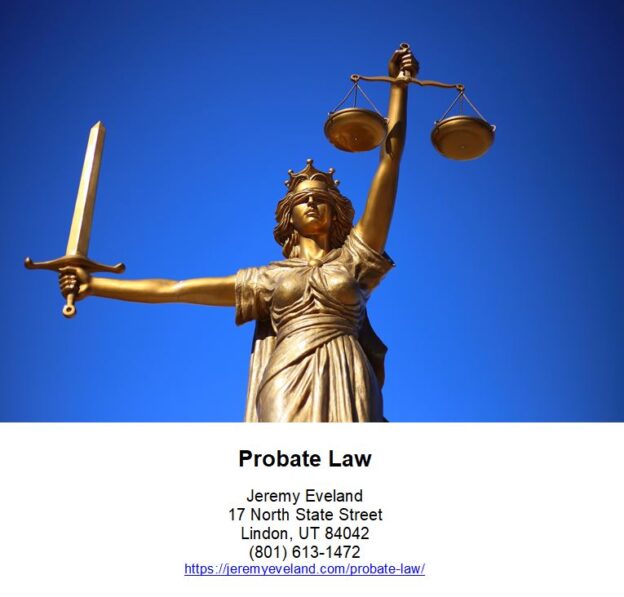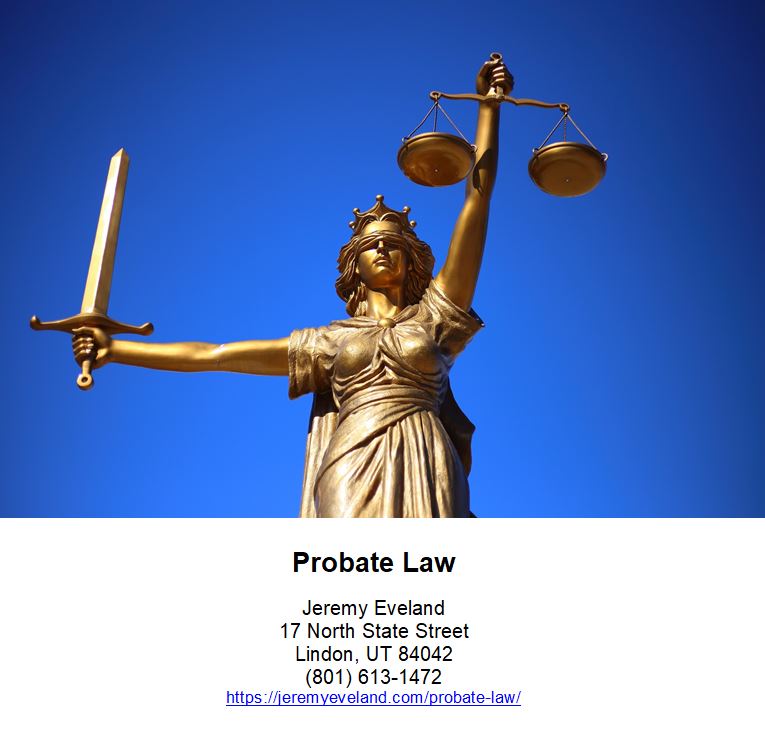Imagine this scenario: you’ve worked your whole life to build a legacy and accumulate assets. You want to ensure that your loved ones are taken care of when you’re no longer around. That’s when a testamentary will comes into play. A testamentary will is a legal document that allows you to designate how your assets will be distributed after your passing. It’s an essential tool for anyone wanting to protect their loved ones and ensure their wishes are carried out. If you’re interested in learning more about testamentary wills, don’t hesitate to reach out to the attorney listed on our website. They are here to provide you with the guidance and assistance you need to navigate this important process.

What is a Testamentary Will?
A testamentary will, also known simply as a will, is a legal document that outlines a person’s wishes regarding the distribution of their assets and the management of their estate after their death. It serves as a written declaration of how the individual wants their property to be divided among their beneficiaries, as well as who will be responsible for carrying out their final wishes.
Definition
A testamentary will is a legally binding document that provides instructions for the distribution of assets, appointment of executors and guardians, and other important matters related to the deceased person’s estate. It is the most common type of will and is created in accordance with applicable state laws.
Purpose
The primary purpose of a testamentary will is to ensure that an individual’s wishes regarding their estate are carried out after their death. It provides a clear and explicit outline of how the person wants their assets to be distributed, minimizing the likelihood of disputes among family members and loved ones. Additionally, a testamentary will allows the individual to designate guardians for minor children and appoint executors who will be responsible for managing the estate.
Key Components
A testamentary will typically includes several important components, including:
- Identification: The will should clearly identify the individual creating it, including their full name, address, and any other pertinent information required by state laws.
- Appointment of Executor: The will should designate an executor who will be responsible for administering the estate and ensuring that the provisions of the will are carried out.
- Beneficiaries: The will should clearly identify the beneficiaries who will receive specific assets or portions of the estate.
- Distribution of Assets: The will should outline how the individual wants their assets to be distributed among the beneficiaries, including any specific bequests or conditions for distribution.
- Guardianship: If the individual has minor children, the will should designate guardians who will be responsible for their care and well-being if both parents pass away.
- Residual Estate: The will should outline how any remaining assets or funds should be distributed if there are no specific instructions for certain assets.
- Signatures and Witnesses: A testamentary will must be signed by the individual and witnessed by at least two competent witnesses, as required by state laws.
Advantages of a Testamentary Will
A testamentary will offers several advantages that make it a popular choice for individuals looking to ensure the proper distribution and management of their estate.
Inheritance Control
One of the key advantages of a testamentary will is that it allows you to have control over how your assets will be distributed after your death. By clearly stating your wishes in writing, you can ensure that your property goes to the people or organizations that you believe deserve it most.
Designating Executors and Guardians
A testamentary will also allows you to designate executors and guardians. Executors are responsible for managing the estate, paying debts, and distributing assets according to the terms of the will. Guardians, on the other hand, are responsible for the care and well-being of any minor children named in the will. By appointing trusted individuals for these roles, you can have peace of mind knowing that your affairs will be handled by someone you trust.
Minimizing Probate Issues
Another advantage of a testamentary will is that it helps to minimize potential disputes and complications that can arise during the probate process. By clearly outlining your intentions in writing, you make it harder for beneficiaries to challenge the distribution of your assets. This can save your loved ones time, money, and emotional stress during an already difficult time.
Click Here For More Information
Requirements for Creating a Valid Testamentary Will
Creating a valid testamentary will requires meeting specific criteria and following certain formalities.
Testamentary Capacity
To create a valid testamentary will, you must possess testamentary capacity. This means that you must be of sound mind and understand the nature and consequences of creating a will. You should have a clear understanding of the assets you own, the beneficiaries you wish to include, and the overall purpose and effect of the will.
Age Requirements
There are specific age requirements for creating a valid testamentary will. In most jurisdictions, you must be at least 18 years old to create a will. However, there may be certain exceptions for minors who are married or serving in the military. It is important to consult with an attorney to understand the age requirements in your particular jurisdiction.
Formalities
There are certain formalities that must be followed when creating a testamentary will to ensure its validity. These formalities may vary depending on state laws, but generally include the following:
- Writing: The will must be in writing, whether it is handwritten or typed.
- Signature: The will must be signed by the individual creating it in the presence of at least two competent witnesses.
- Witnesses: The witnesses must be present at the same time and sign the will in the presence of the individual creating it. The witnesses should not be beneficiaries or heirs named in the will to avoid conflicts of interest.
- Attestation Clause: Some jurisdictions may require an attestation clause, which is a statement at the end of the will signed by the witnesses, affirming that they witnessed the signing of the will.
It is crucial to ensure that the formalities required by your state are followed to avoid any potential challenges to the validity of your testamentary will.
Steps to Draft and Execute a Testamentary Will
Creating a testamentary will involves several steps to ensure that your wishes are accurately and legally documented.
Gather Information
The first step in drafting a testamentary will is to gather all relevant information about your assets, beneficiaries, and any other specific instructions you have in mind. Make a comprehensive list of your assets, including real estate, bank accounts, investments, and personal belongings. Consider who you want to receive each asset and any specific conditions or instructions you want to include.
Consult an Attorney
It is highly recommended to consult with an experienced estate planning attorney when drafting a testamentary will. An attorney can provide invaluable guidance and ensure that your will is legally enforceable. They can also help you navigate the complexities of the probate process and address any specific concerns or questions you may have.
Identify Beneficiaries and Allocate Assets
Next, clearly identify your beneficiaries and determine how you want to divide your assets among them. Consider family members, friends, charitable organizations, or any other individual or entity you wish to include. Be specific in outlining what each beneficiary will receive to minimize confusion and potential disputes.
Designate Executors and Guardians
Appointing executors and guardians is an important aspect of creating a testamentary will. Choose individuals who are reliable, trustworthy, and capable of handling the responsibilities associated with these roles. Discuss your intentions with the potential executors and guardians to ensure their willingness to accept the responsibility.
Include Specific Bequests
If you have specific items or assets that you want to bequeath to certain individuals, include these instructions in your testamentary will. These can be sentimental items, family heirlooms, or anything else of significance that you want to ensure goes to a particular person.
Distribution of Residual Estate
Specify how you want any remaining assets or funds to be distributed in the event that there are no specific instructions for certain assets. This is often referred to as the distribution of the residual estate and can provide further clarity and direction for your beneficiaries.
Execution Formalities
After the testamentary will is drafted, you will need to sign it in the presence of at least two competent witnesses. Ensure that the witnesses are not beneficiaries named in the will and that they also sign the will. Consider having your signature notarized to add an extra layer of authentication.
Challenges and Disputes to Testamentary Wills
While testamentary wills are meant to provide a clear expression of an individual’s wishes, challenges and disputes can still arise.
Lack of Testamentary Capacity
One common challenge to a testamentary will is the claim that the individual lacked testamentary capacity at the time of creating the will. If it is argued that the person was not of sound mind or was unduly influenced, the will’s validity may be called into question.
Undue Influence
Undue influence occurs when someone exerts pressure or manipulates the individual creating the will to benefit themselves or others. This can lead to a will being contested on the grounds that it does not truly reflect the individual’s wishes.
Forgery or Fraud
In some cases, testamentary wills may be challenged on the basis of forgery or fraud. If there is evidence to suggest that the will was not signed by the individual or that their signature was forged, the will may be deemed invalid.
Ambiguity or Invalid Provisions
Another challenge to testamentary wills arises when the will contains ambiguous language or provisions that are against public policy or otherwise invalid. This can lead to confusion and disputes among beneficiaries and may result in certain provisions of the will being disregarded.
It is important to address these potential challenges when drafting a testamentary will to ensure its validity and minimize the likelihood of disputes.
Revoking or Amending a Testamentary Will
Sometimes, circumstances change, and it becomes necessary to revoke or amend a testamentary will.
Revocation by Physical Act
One way to revoke a testamentary will is through a physical act, such as tearing, burning, or otherwise destroying the original will. This act must be done with the intent to revoke the will and should be witnessed.
Revocation by Execution of a New Will
Creating a new testamentary will automatically revokes any prior wills, as long as the new will contains a revocation clause. It is important to explicitly state in the new will that it revokes all prior wills and codicils.
Revocation by Writing
In some cases, a testamentary will can be revoked by a subsequent written document that clearly expresses the individual’s intent to revoke the will. This document should be signed and witnessed, similar to the execution formalities required for creating a will.
It is crucial to consult with an attorney when revoking or amending a testamentary will to ensure that the process is done correctly and in accordance with applicable laws.
Intestate Succession
If an individual dies without a valid testamentary will, they are said to have died intestate. In such cases, the distribution of their assets is governed by the laws of intestate succession.
Definition
Intestate succession refers to the legal process of distributing the assets of an individual who died without a valid will. The laws of intestate succession vary by jurisdiction but generally attempt to distribute the assets in a way that reflects the likely intentions of the deceased individual.
Consequences of Dying Intestate
When a person dies intestate, their assets are distributed according to state laws, which may not align with their wishes. The distribution may prioritize family members, such as spouses, children, parents, and siblings, depending on the particular jurisdiction’s laws.
Laws of Intestate Succession
Each jurisdiction has its own set of laws that govern intestate succession. These laws typically outline the order of priority for distributing assets among relatives and may vary depending on the presence of a surviving spouse, children, parents, and other family members. It is important to consult with an attorney to understand the laws of intestate succession in your jurisdiction to ensure that your assets are distributed according to your wishes.
Differences Between Testamentary Will and Living Will
While both testamentary wills and living wills deal with important aspects of estate planning, they serve different purposes and have distinct characteristics.
Definition of Living Will
A living will, also known as an advance healthcare directive, is a legal document that outlines an individual’s preferences for medical treatment and end-of-life care. It comes into effect while the person is still alive and can no longer communicate their wishes.
Purpose and Usage
The purpose of a living will is to provide guidance to medical professionals and loved ones regarding the individual’s wishes for medical treatment and end-of-life care. It addresses specific situations such as life-sustaining treatment, pain management, and organ donation. A living will ensures that the person’s healthcare decisions are respected and followed, even if they are unable to communicate or make decisions for themselves.
Key Differences
The key difference between a testamentary will and a living will lies in their timing and purpose. A testamentary will takes effect upon the death of the individual and deals with the distribution of assets and the management of the estate. On the other hand, a living will addresses healthcare decisions and comes into effect during the individual’s lifetime when they are unable to make medical decisions on their own.
It is important to have both a testamentary will and a living will to cover different aspects of estate planning and ensure that your wishes are carried out both during your lifetime and after your death.
Professional Assistance for Creating a Testamentary Will
Creating a testamentary will is a complex process that requires careful consideration and adherence to legal requirements. Seeking professional assistance is highly recommended to ensure that your will is legally valid and reflects your wishes accurately.
Importance of Seeking Legal Advice
An experienced estate planning attorney can provide essential guidance and expertise when creating a testamentary will. They can help you understand the legal requirements, draft a comprehensive will that covers all relevant aspects, and minimize the likelihood of disputes or challenges. Additionally, an attorney can advise you on strategies to minimize taxes and ensure the smooth administration of your estate.
Finding an Experienced Attorney
When seeking an attorney to assist with the creation of your testamentary will, it is important to find someone with expertise in estate planning and probate law. Ask for recommendations from friends, family, or other trusted professionals. Research potential attorneys and schedule consultations to discuss your needs and ensure a good fit.
Cost of Professional Assistance
The cost of professional assistance for creating a testamentary will may vary depending on the complexity of your estate and the specific services provided by the attorney. It is important to discuss fees and any additional costs upfront to ensure transparency and avoid any surprises.
While seeking professional assistance may incur costs, the peace of mind and assurance that your wishes are properly documented and legally enforceable outweigh the financial investment.
Importance of Regularly Reviewing and Updating a Testamentary Will
Once you have created a testamentary will, it is important to regularly review and update it to ensure that it remains accurate and reflects your current wishes.
Life Events
Life events such as births, deaths, marriages, divorces, and changes in financial circumstances can have a significant impact on your testamentary will. Regularly reviewing and updating your will allows you to account for these changes and ensure that your assets are distributed according to your current wishes.
Changing Laws
Laws relating to estate planning, probate, and taxes can change over time. It is crucial to stay informed about these changes and update your testamentary will accordingly. An outdated will may not reflect the most favorable tax strategies or adhere to the latest legal requirements, potentially leading to unintended consequences.
Keeping Up with Beneficiary Designations
In addition to updating your testamentary will, it is important to regularly review and update beneficiary designations on accounts such as life insurance policies, retirement accounts, and bank accounts. These designations typically override the instructions in your will and should be kept up to date to ensure that your assets are distributed as intended.
Regularly reviewing and updating your testamentary will and beneficiary designations is essential to ensure that your wishes are accurately represented and that your estate plan remains current and effective.
In conclusion, a testamentary will is a vital document that allows you to direct the distribution of your assets and the management of your estate after your death. By creating a valid testamentary will, you can have peace of mind knowing that your final wishes will be carried out and that your loved ones will be provided for. Seeking professional assistance and regularly reviewing and updating your will are important steps to ensure that your testamentary will accurately reflects your current circumstances and wishes.




















